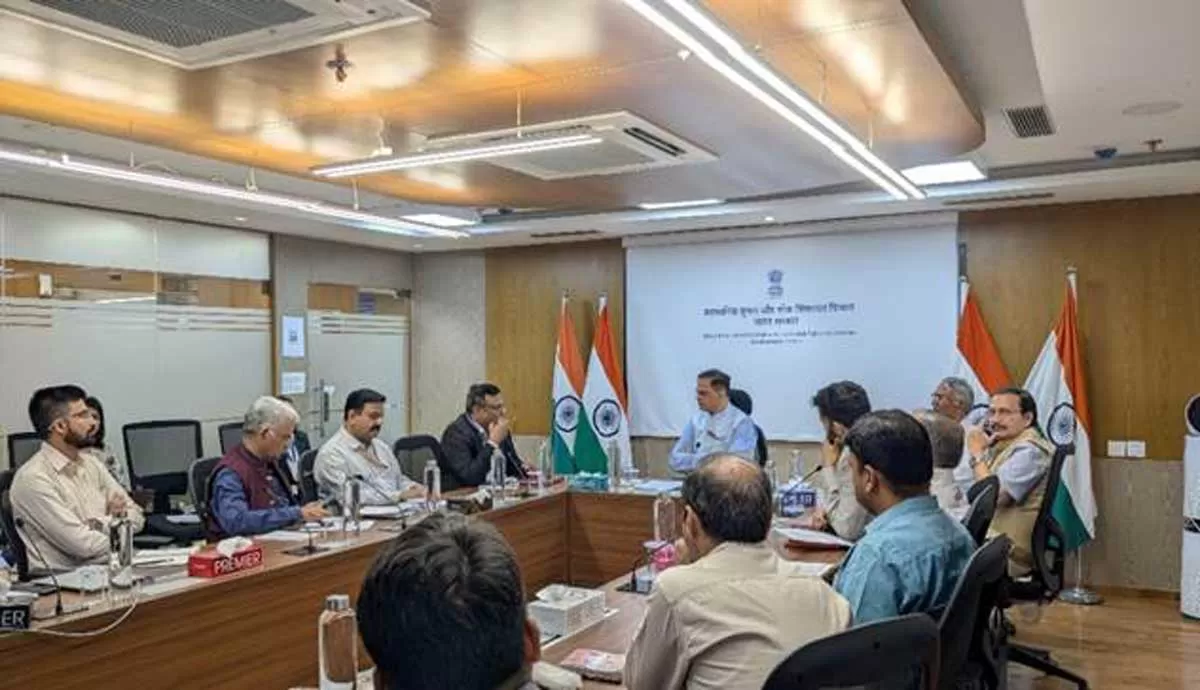The building materials industry is projected to grow by 8-12 per cent over the next five years. How is Aparna Enterprises positioning itself to leverage this momentum and solidify its market presence?The Indian construction and building materials industry is projected to witness significant expansion, with estimates suggesting an 8-12 per cent compound annual growth rate (CAGR) over the next five years. This growth is fuelled by rapid urbanisation, increased infrastructure investments and sustainability-focused policies. With India's real-estate market expected to reach $ 1 trillion by 2030, the demand for high-quality building materials is at an all-time high.The Government of India’s flagship programmes, such as PM Gati Shakti, the Smart Cities Mission and the Housing for All (PMAY-Urban) initiative, are key drivers of this surge. The infrastructure sector alone is expected to receive a budgetary push of over Rs 11 trillion in FY25, with enhanced capital expenditure allocation.At Aparna Enterprises, we are proactively aligning with this momentum through capacity expansion, product diversification, and cutting-edge technological integration. Our key strategic priorities include:Expanding operations in high-growth regions across Tier-2 and Tier-3 cities, ensuring access to quality building materials nationwideInvesting in automation, AI-driven quality control systems and digital integration, enhancing efficiency and precision in manufacturingScaling up production capabilities in our RMC, tiles, uPVC and other divisions to meet the anticipated surge in demand.By leveraging these opportunities, we are poised to contribute significantly to India’s infrastructure-led growth and cement our leadership in the building materials sector.Aparna RMC currently has an annual production capacity of 18 million cu m. What are the plans to scale up capacity and what investments are being made to support this expansion?With ready-mix concrete (RMC) penetration in India at just 10 per cent compared to 60-70 per cent in developed nations, the potential for growth is enormous. Driven by the Government’s focus on large-scale urbanisation, smart cities and mass transit systems, the demand for high-performance RMC is expected to rise at a CAGR of 8.2 per cent in coming years. To cater to this growing demand, Aparna Enterprises is investing in capacity expansion and next-generation RMC production technologies. Our initiatives include:Doubling production capacity in strategic markets by setting up state-of-the-art batching plants in key infrastructure hubsAdopting AI-powered predictive analytics for demand forecasting, reducing material wastage and ensuring optimal resource utilisationEnhancing sustainability in RMC production by incorporating fly ash, slag cement and recycled aggregates, contributing to India’s circular economy goals.Our expansion aligns with the Government’s push for Bharatmala Pariyojana, AMRUT 2.0, and the Green Energy Corridor, which emphasise high-quality construction materials in infrastructure projects.With our strong logistics network and technology-driven processes, we aim to reinforce our leadership in the RMC segment while contributing to India's construction sector transformation.What steps is Aparna Enterprises taking to expand its national footprint and increase market share in the RMC segment?Aparna Enterprises has built a robust pan-India presence, focusing on delivering consistent quality, durability, and efficiency in the RMC segment. Our expansion strategy is centred on three key areas:Geographical expansion: We are investing in new batching plants in high-growth cities, catering to real estate, commercial and government infrastructure projects.Strategic partnerships: We are collaborating with leading developers, government agencies and institutional contractors to integrate our RMC solutions into major projects.Technology-driven growth: By adopting Cloud-based production tracking systems, IoT-enabled machinery and automated material handling, we are streamlining supply chains and reducing lead times by 20 per cent. This approach, combined with India's projected urban population increase to 600 million by 2036, reinforces our commitment to meeting the evolving needs of the construction ecosystem while ensuring sustainability and efficiency in RMC production.The construction industry is shifting towards greener practices. How is Aparna Enterprises integrating sustainability into its operations and product offerings?The Indian construction sector accounts for 40 per cent of the country’s carbon emissions, making sustainability a non-negotiable priority. In line with India’s National Action Plan on Climate Change (NAPCC), Energy Conservation Building Code (ECBC) and Net Zero Carbon Emission Goals, Aparna Enterprises is embedding sustainability across its operations:Eco-friendly RMC solutions: Utilising low-carbon concrete formulations, geopolymer-based binders and supplementary cementitious materials (SCMs) to reduce emissionsRecycling and circular economy integration: Incorporating recycled concrete aggregates and construction waste into production, reducing virgin material usage by 30 per centWater conservation strategies: Implementing closed-loop water recycling systems in batching plants, reducing freshwater consumption by 40 per centEnergy-efficient processes: Enhancing our manufacturing efficiency by using renewable energy and alternative fuels, aligning with India's Mission LiFE (Lifestyle for Environment) initiative.These initiatives ensure that Aparna Enterprises remains at the forefront of India’s green building movement, setting industry benchmarks in sustainability.As a leader in the building materials industry, what key factors do you believe contribute to increasing women's representation in leadership roles and how can businesses create more opportunities for them?The construction and building materials sector has traditionally been male-dominated but women’s participation is gradually increasing. In India, women currently make up 12.8 per cent of the construction workforce, with efforts underway to enhance their representation in leadership roles. Globally, organisations that prioritise gender diversity tend to be more profitable, innovative and resilient, underscoring the economic and social imperative of inclusive leadership. To accelerate this shift, businesses can focus on three critical areas:Enabling gender-inclusive policies: Establishing structured workplace policies, including equal pay, parental leave and flexible work arrangements, to eliminate barriers to women's participation at all levelsEnhancing skill development and leadership training: Investing in specialised training programmes, technical upskilling and mentorship initiatives to equip women with the expertise and confidence to take on leadership roles in construction, manufacturing and operationsCreating leadership pathways: Building clear career progression frameworks that identify and groom women for senior leadership positions, ensuring a pipeline of diverse talent in decision-making roles.At Aparna Enterprises, we are actively fostering a diverse and inclusive workforce, ensuring that women professionals have the right support, opportunities and mentorship to thrive in leadership roles. By championing gender inclusivity, we are not only strengthening our organisation but also contributing to a more progressive, balanced and future-ready industry.


















